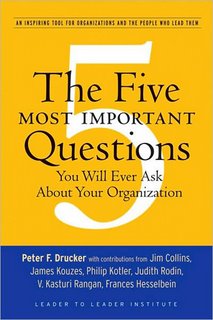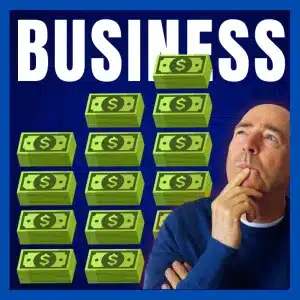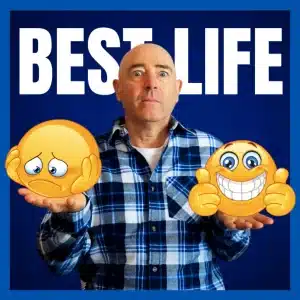Just finished reading Peter Drucker’s The Five Most Important Questions.
It reminds me of an old story…
A business executive returns to college to meet up with his favourite professor who is approaching retirement age.
The exec arrives a little early and sits in on the last part of the professor’s lecture.
Later over coffee, the executive says to the professor, “After all these years, you’re still presenting the same old lectures…”
And the professor replies, “Ah, yes. The basic questions for anyone in business remain the same, it’s just that the answers have changed.”
Drucker’s book is interesting because he died some years back, yet it contains some fresh content… No, it’s not about the Twilight Zone!
Drucker asks the same questions he did many years ago and this time we have some fresh answers by experts such as Jim Collins and Philip Kotler.
This is a really interesting idea for an author or publisher.
A bit like an interview book with a twist. Ask the experts how they would deal with certain business issues. Keep it simple, say, down to five questions. Record the answers and voila! A book. Even better, do it again with different experts next year…
In case you’re wondering, the five most important questions you can ask about your organization are:
Drum roll please…
- What is our mission?
- Who is our customer?
- What does the customer value?
- What are our results?
- What is our plan?
This could easily be used to create a one-page business plan…




